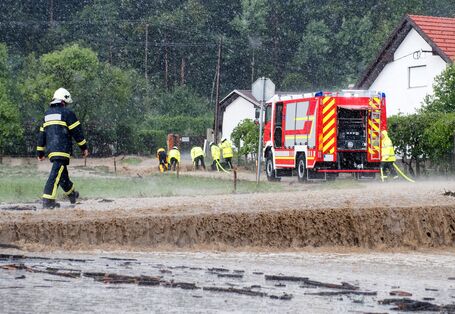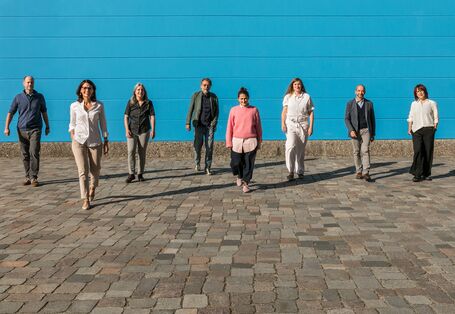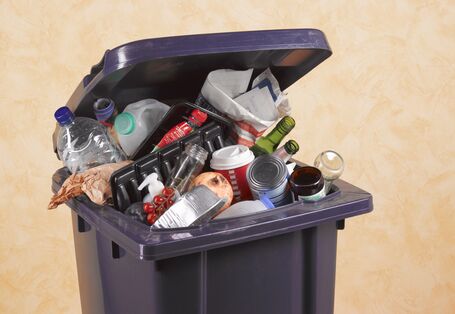Press
Press releases
241–252 of 728
Resolute environmental protection will save society many billions of euros

Greenhouse gases, nitrogen emissions and other environmental pollution cause damage to human health and destroy ecosystems. They also lead to production losses, crop losses and damage to buildings and infrastructure. For many of these damages, there are established scientific methods to express them in monetary terms.
Coronavirus pandemic and stormy February lead to increase in share of renewable energies in electricity supply sector in Germany

The share of renewable energies in gross electricity consumption will be around 46 percent for the full year 2020 – a good four percentage points higher than the figure for the full year 2019 (42%). The increase was due to an increase in electricity generation from renewable sources of about five per cent, but also to a decrease in electricity consumption in the course of the coronavirus pandemic.
Climate impact of online retail and stationary trade depends on the product

Nearly three quarters of the greenhouse gas emissions in the life cycle of a product are generated as early as the production stage, says a study for the German Environment Agency (UBA) which focuses on the greenhouse gas emissions of online retail (“Greening E-Commerce”). The study reports that the share of retail and transport accounts for only one to ten percent of total emissions.
Fireworks produce 2,050 tonnes of particulate matter per year

Particulate matter pollution in the early hours of New Year's Day is usually at some of the highest levels of the whole year, especially in metropolitan areas and cities – due to New Year's fireworks and emissions of particulate matter. It was previously assumed that 4,500 tonnes of particulate matter emitted by fireworks are to blame for the poor air quality.
Ninth year of Federal Ecodesign Award for forward-looking projects

A virtual journey to a high alpine glacier, rescued crockery, recyclable denim production or the revival of old variety vegetables – the winners of the German Federal Ecodesign Award look for solutions to a more sustainable lifestyle with pioneering projects that are both ecological and excellent in their design.
750 experts discuss new PFAS research and strategies

On 30.11. and 1.12.2020 the conference „PFAS - Dealing with contaminants of emerging concern“ took place. Experts from Europe and around the world exchanged views online on how to deal with environmental pollution caused by poly- and perfluorinated alkyl substances (PFAS). Because of their unique properties, these more than 5,000 substances are used in a wide variety of products.
Invisible Waste – waste that is out of sight

The 11th edition of European Waste Reduction Week (EWWR) starts on Saturday 21 November. More than 1,000 actions all about waste reduction will take place throughout Germany until 29 November. This year's motto in Germany for the week is "Invisible Waste: Waste we don't see – look closely!"
Using coronavirus stimulus packages to enhance climate action

Stimulus packages amounting to billions of euros have been and are being launched worldwide to mitigate the economic and social impacts of the coronavirus crisis. The Federal Environment Ministry (BMU) and the German Environment Agency (UBA) consider these programmes an opportunity to set the course towards a more sustainable society by planning a resilient and viable economic recovery.
Packaging waste: Online marketplaces must be subject to better oversight

The German Environment Agency (UBA) proposes to require operators of online marketplaces to ensure compliance with the Packaging Act on their platforms. "Digital marketplaces can also do more to protect the environment. We recommend that in future all online platforms check before selling goods whether sellers have complied with the obligation to be registered in the Packaging Register."
Coronavirus in schools: Air purifiers alone are not enough – room ventilation is still key

The use of mobile air purifiers alone is no substitute for adequate ventilation in schools. Mobile air purifiers merely circulate the air in the room and do not replace the necessary supply of outside air. However, there are cases where air purifiers can supplement ventilation in a meaningful way.
Climate change adaptation in Germany – specialist conference on strategies to counter heat, drought and heavy rainfall

A resilient climate change forest, urban green as a cool oasis in the middle of a hot city, climate-friendly building materials made from natural resources, and a coaching programme to assist municipalities in adapting to climate change – these are the winners of this year’s Blauer Kompass award. The projects were honoured during an online conference on climate resilience.
Linking climate change mitigation and resource conservation more closely

The German Environment Agency (UBA) is urging the debate about climate change mitigation not to forget the protection of other resources and raw materials. The UBA study "RESCUE" recently showed for Germany that climate action and resource protection can not only be implemented simultaneously, but that they even support and strengthen each other.